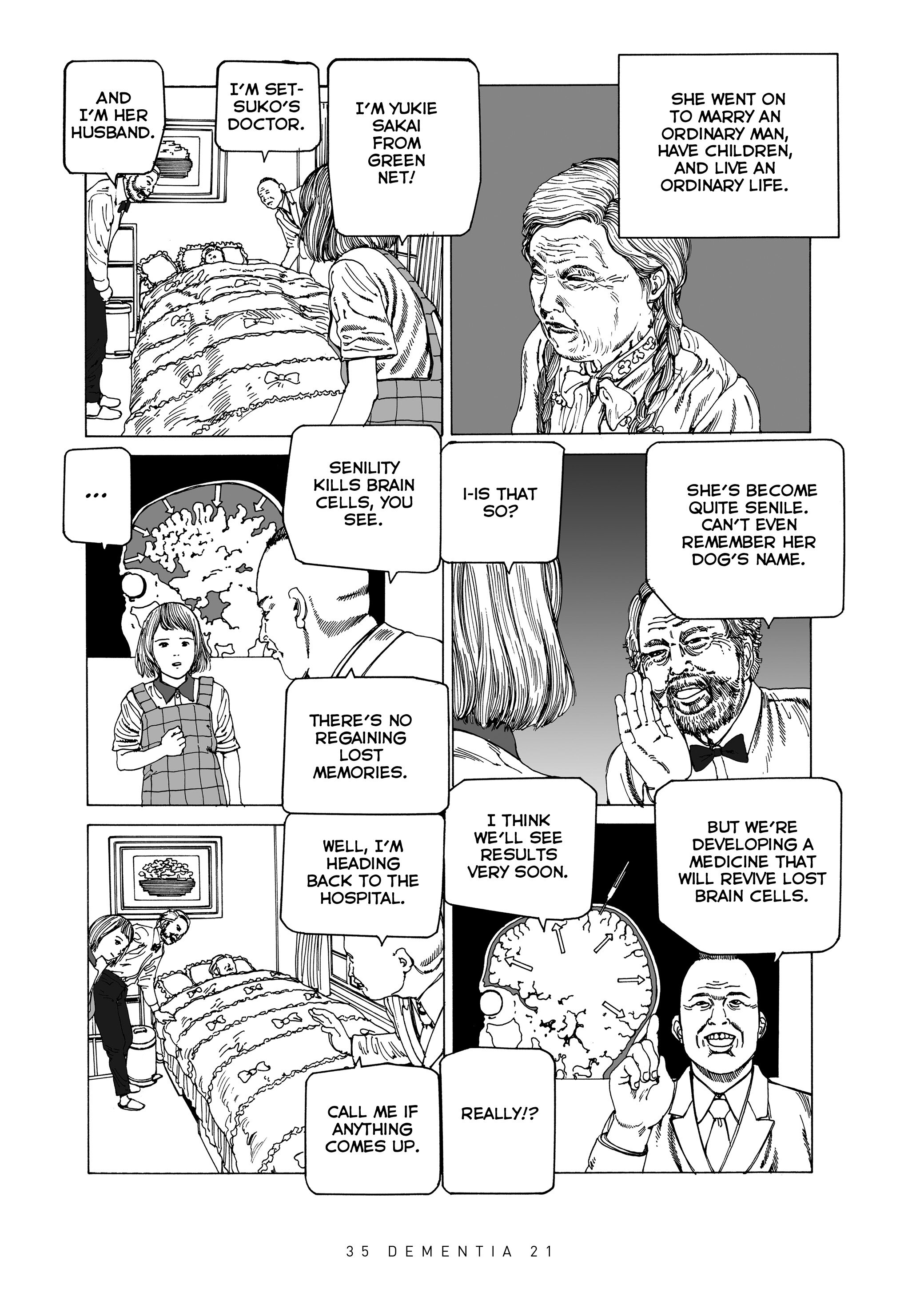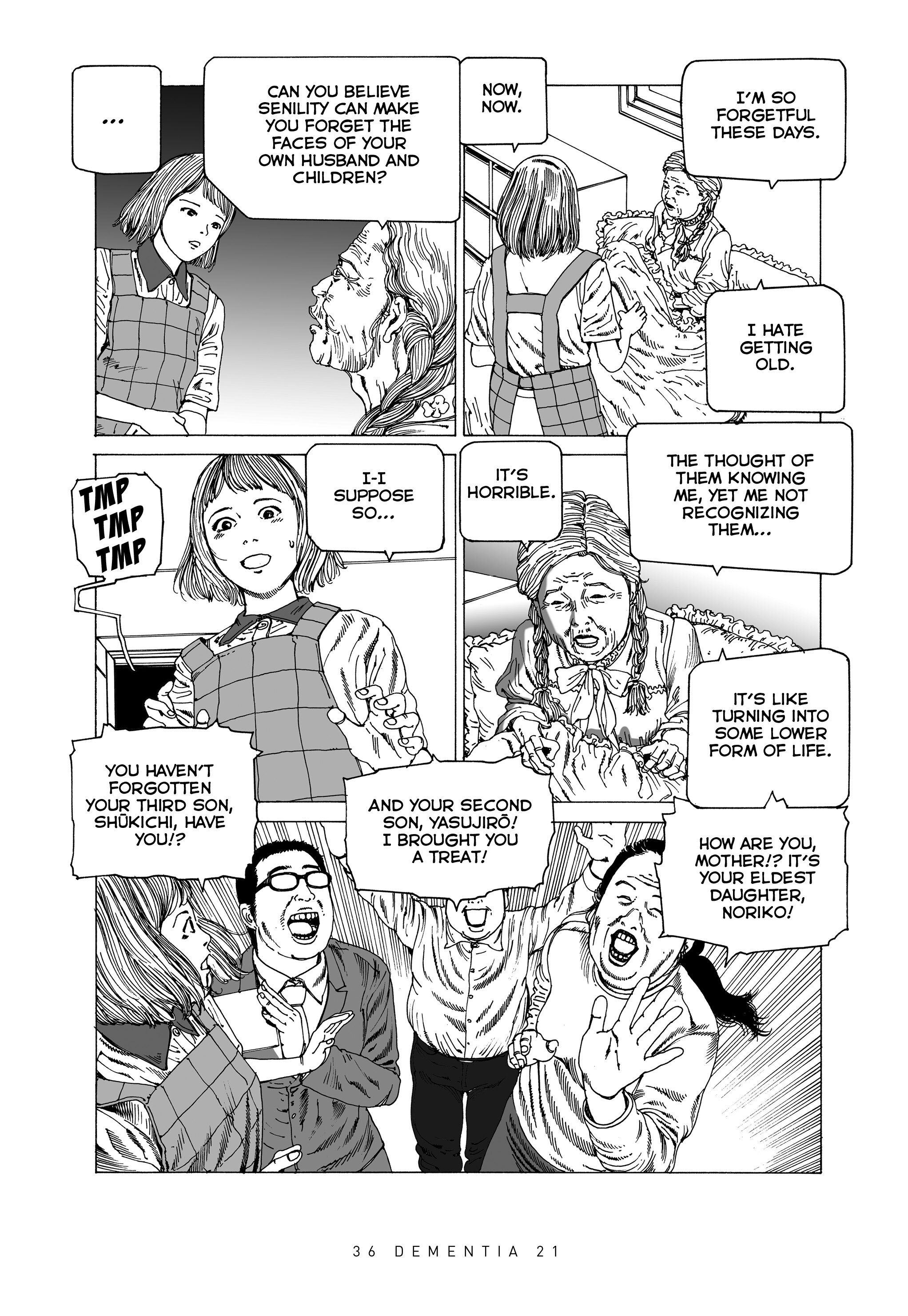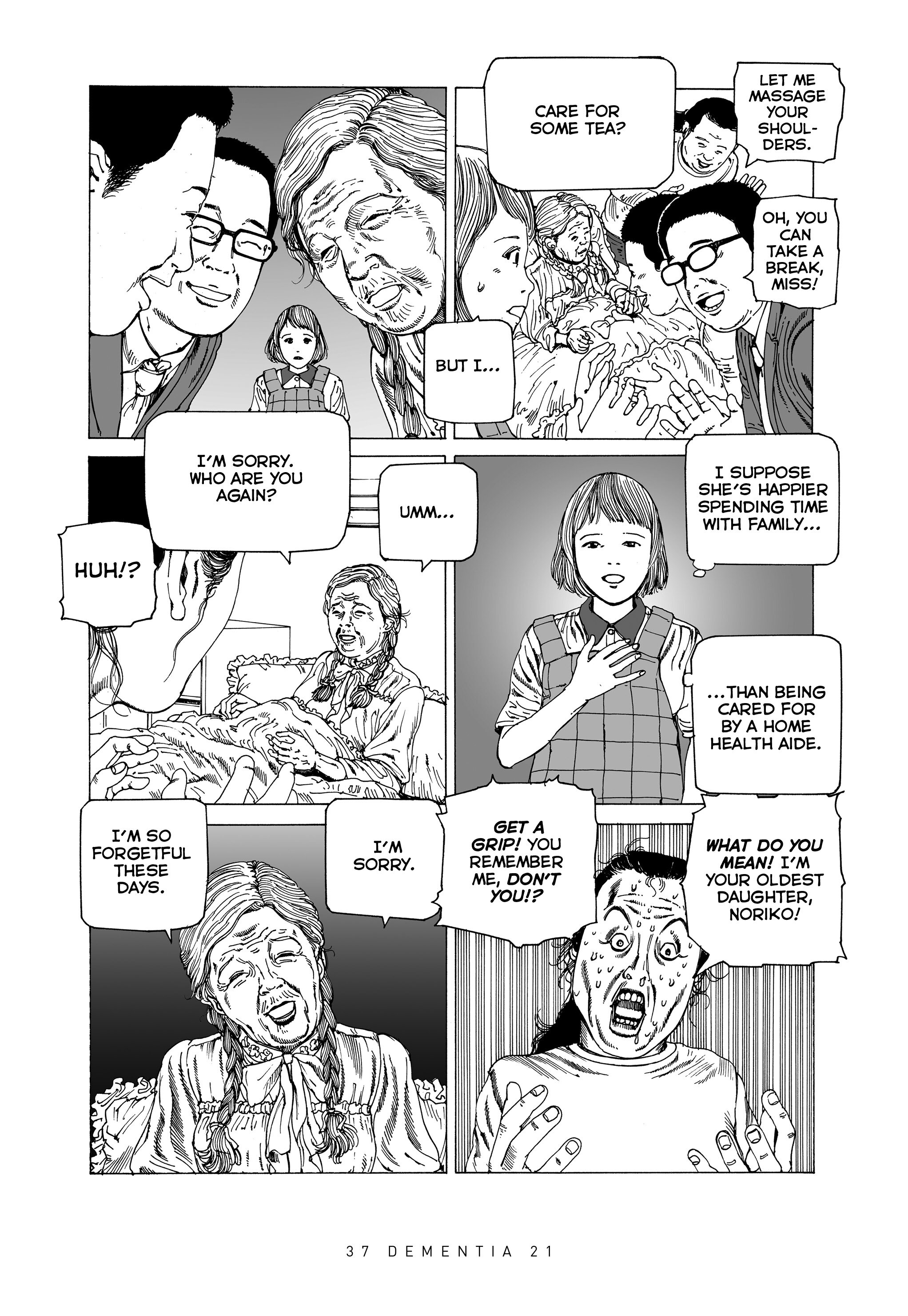Dementia 21 is twisted. I mean that in the best possible way.
From the eerie, delicious mind of Shintaro Kago, the Japanese ero guro nansensu (horror mixed with surrealism) manga artist, Dementia 21 is a chronicle of surreal stories about Yukie Sakai, a home health aide. The horror graphic narrative is twisted and destabilizing, with characters who transform throughout the story, revealing different sides. What you expect is never what the story—or characters—turn out to be, and that is the beauty of what Intima sees as a graphic medicine classic, the first of several translations of Kago’s work that Seattle-based publishing company Fantagraphics Books will release.
Kago’s stories in the volume follow the hardworking Yukie through days fraught with unexpected drama from her patients, their family members and others (see below for a short example). She tries to handle them as they come at her, and she usually can cope with the weirdest situations. But as fellow home health aides become jealous of Yukie’s ability to get the top score at the company each month, a rival healthcare worker plots to send her to difficult clients to drop her score. The first home Yukie gets sent to turns out to be a death trap, where five previous home health aides have met strange and freak accidents. While cleaning, Yukie comes across a secret panel depicting the faces of the five previous aides when suddenly, the elderly patient Yukie is helping attacks her. Yukie survives, however, because the old woman needs her heart medication, and ironically, in exchange for the medication, Yukie gets a high score.
The contest for top home health aide quickly devolves into the absurd. The second home Yukie is sent to has three elderly women. Caring for three people is already exhausting enough when the next day, those three women become six. The next day, six become twelve, until the whole house is crammed with elders. Strangers dump their relatives at the house, and Yukie is appalled. “How can you let yourselves be treated this way?” she cries to the patients. “Thrown out like trash by your own flesh and blood! DOESN’T THIS BOTHER YOU AT ALL!?.” It’s a question they are powerless to answer.
Every chapter begins with a full-page spread, one of this graphic artist’s signature techniques. Sometimes Yukie is crawling out of her own face; sometimes she is fending off danger, hair flying; sometimes she is being strangled and swallowed by wires. Often, the backgrounds of panels convey horror, fear, and confusion with layered visual elements—brush strokes, whorls, gothic detailing—that portray a chaotic emotional reality. These graphic strokes reverberate and tantalize the reader but also create a sense of horror about the confusion of health, illness and difficulties of healing and healthcare.
This powerful narrative contains multiple meaning: Part social commentary and satire, part menacing story colored by greed and selfishness, part narrative on thankless work, Dementia 21 is a transgressive form of graphic medicine. When I read other memoirs on aging and dementia, such as Joyce Farmer’s Special Exits and Roz Chast’s Can’t We Talk About Something More Pleasant?, I sense fear and anxiety, trembling and loss. When I read Kago’s book, however, it’s a different energy: one tinged with madness and imagination. It reads like a dream: What should we believe? What should we hold onto? What parts strike us most, and what does that say about us?
Dementia 21 is the myth of Sisyphus through a Japanese lens, with an enthusiastic healthcare worker tirelessly pushing against obstacles to make a difference while also making a living. At its core, the book is a graphical exploration of dementia and aging and its accompanying themes of abandonment, forgetfulness, senility, competition, technology, division and difference, abuse, and bullying. Ultimately, it is an eye-popping and painful story that explores the meaningfulness of life by focusing on the elderly and those who care for them.
Over thirty years since he debuted his first book, Comic Box, Kago continues to cross boundaries most other manga artists won’t go near by subverting expectations and breaking the fourth wall. His aesthetic is akin to shifting on soft soil, wallowing in shit (literally), its narrative dark but laugh-out-loud funny. He forces you to push your boundaries to the point of discomfort, and challenges you to stay there.
Dementia 21, Vol. 2 is scheduled for release in early 2020.—Jane Zhao
Jane Zhao
Jane Zhao is a lover of comics because when she has no brain or patience for words, she can escape into image. She is a graduate of the Narrative Medicine program at Columbia University and studied neuroscience at McGill University. She currently works in research in Canada. Talk to her about poetry, Donna Haraway, health policy, and muscle pain.





